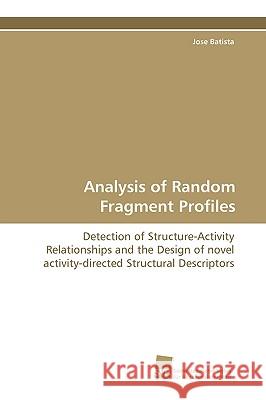Analysis of Random Fragment Profiles » książka
Analysis of Random Fragment Profiles
ISBN-13: 9783838101712 / Angielski / Miękka / 2008 / 96 str.
Fragment-type descriptors are effective and widely used tools in computer-aided drug discovery. This book introduces a novel method that departs from traditional fragment design schemes. Fragment profiles of molecules are generated by random deletion of bonds. Such profiles can be mined for substructures associated with different compound classes. For the analysis of molecular similarity relationships, the profiles are quantitatively compared using entropy-based metrics. Similarity searching experiments on compound classes with varying structural diversity produce promising results, in respect to traditional fingerprints.In a further step, random profiles were minded for dependency relationships of fragment co-occurrence, which enables to isolate substructure pathways of biological active compounds. So-called Activity Class Characteristic Substructures (ACCS) can be identified for molecules with similar activity. In virtual screening, short ACCS fingerprints perform comparable to state-of-the-art fingerprints of higher complexity. Therefore, the analysis of randomly generated fragment profiles open up new possibilities for the design of fragment-type descriptors.











